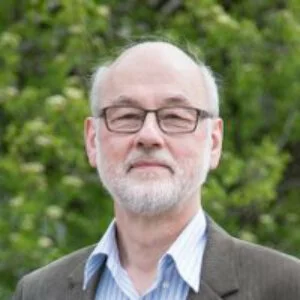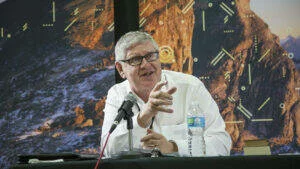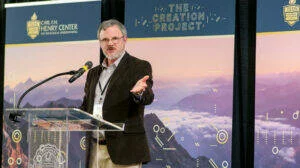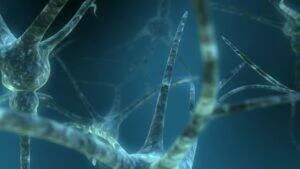Mano Singham’s paper is about supporting public trust in science. He makes two main points. First, Singham points out that science deniers assume that falsification is the foundation of the scientific method. They use falsification to reject sound scientific theories about vaccination, climate change, evolution and the like. Singham rejects this.
Second, he argues that subjective influences have a constructive role in science and do not diminish its reliability. One motivation for the idea of falsification was to distinguish science from non-science. It failed for a variety of reasons. This prompted attempts better to understand why the natural sciences deserve our confidence. These so-called Science Studies revealed that subjective influences have important constructive roles in science, but practicing scientists cried foul. They felt that such studies undermine public trust in science. Singham disagrees, pointing out that practicing scientists who understand the role of subjective influences in science are better able to recognize and evaluate the objectivity of science. Good point. This is why I believe that history and philosophy of science should be part of science education.
Beyond Falsification
I add a few points in support. Philosophers of science have long since moved beyond falsification. Their reasons are many and varied. For one, falsification cannot demarcate science from non-science. Thus, arguments by anti-vaxxers or anti-evolutionists or climate change deniers to the effect that they have falsified the scientific consensus fall flat.
Cognitive Dissonance
Further, Singham is using scientific and philosophical arguments to convince science deniers of their mistake. Unfortunately, a reasonably educated science denier is more likely to reject science than a less educated one.Bolsen et al., “Citizens’, Scientists’, and Policy Advisors’ Beliefs about Global Warming,” The Annals of the American Academy of Political and Social Science 658 (1) 271–95 (2015). https://doi.org/10.1177/0002716214558393 When science as such is questioned, scientific arguments have no force.
Emotions explain the attitudes of science deniers much better than scientific arguments. New information may create cognitive dissonance when it fails to fit in an otherwise coherent worldview to which one is emotionally attached. This can create a negative emotional experience as well as associated bodily discomfort. The emotional need for a coherent worldview motivates science deniers to resolve cognitive dissonance by rejecting the science.
Cognitive dissonance originating in sound scientific knowledge
So, how could can we remove the emotional barriers to public trust in science? A threat may originate in scientific knowledge or in its ideological extensions. Here are two examples of well-establishedPhilosophers of science have long since moved beyond falsification. Their reasons are many and varied. scientific knowledge perceived by some as threatening. In physics, a threat has been perceived in random phenomena such as heat movement. Heat movement makes diffusion and osmosis possible, which are required for life’s processes. The lack of direction in random phenomena creates cognitive dissonance for some who believe that a Creator-God is in control of everything. But resolution is easy. If God created everything, then random phenomena are included. Thus, God controls them too.
In paleontology, many Christians perceive the discovery of disease and death before there were humans as a threat to the view that these are the cosmic consequences of Adam’s fall. No fall, no need for redemption. The goodness of God is also in question. If not a result of the fall, then God must have created disease and death. Conflict resolution again involves adjustments in worldview. Biblical scholars employ a time-honored approach to conflict resolution: extra-biblical knowledge prompts a reconsideration of the interpretation of a text provided the justification is from scripture. For instance, the curse of death is taken to apply only to Adam and Eve, not to the whole universe. The goodness of God poses a more to difficult problem. One resolution is to assume that God has good reasons for creating a world with disease and death. We know this from the story of Job, although in that story God did not create—but rather allowed—disease and death. We must be satisfied with the assertion that since God is good, disease and death must somehow have an explanation.
Cognitive dissonance originating in ideological extensions of science
What about threats emerging from ideological extensions of science known as scientism? They provoke passionate controversy among scientists. For instance, evolutionary biologists agree that humans are by nature selfish. But as Michael Ruse points out, humans cannot survive without cooperation. He assumes that natural selection has picked genes that cause us to believe that there are moral rules that do not really exist.Imagine scientific knowledge as a network of interconnected worldviews, scientific theories, explanations, observation statements, and assumptions. Connections between science and ideology can be made, and unmade. By making us rely on illusionary moral rules that encourage cooperation, natural selection has made us good biological altruists. The evolution of moral altruism is the means to overcome our selfish nature. The function of morality is to make animals that live in groups biological “altruists.” However, such a reductionist account of morality is not scientific for it cannot be tested empirically. It is, therefore, an ideological extension of the theory of evolution. This ideological extension originates in philosophical naturalism, which excludes the possibility of divinely instituted realities such as moral rules.
This creates two sources of potential cognitive dissonance. For one, it threatens those who hold that moral rules are real in some sense. For another, since morality is a product of random variation and natural selection, Ruse has suggested that human species other than Homo sapiens and living in a different galaxy can develop a different morality. Many reject this kind of moral relativism. Ruse thinks that dissonances of this magnitude may be irresolvable. But Francisco Ayala proposed a solution by distinguishing the moral sense from moral rules. The moral sense, i.e., the capacity of humans to make moral judgments, is a feature of human nature. It developed as an indirect result of the evolution of cognition by natural selection. By contrast, moral rules are learned in one’s culture. Christians, for example, develop a conscience by learning what God’s will is. This avoids moral relativism because for Christians God’s will applies universally. I am not saying that any of these approaches are without problems. My point is that there are available options for conflict resolution.
Popper tried to dismiss ideologies by arguing that they are not falsifiable. But he also suggested that we can turn ideologies (metaphysical beliefs) into legitimate scientific knowledge by making them falsifiable. The next generation of philosophers and historians of science rejected falsification, but they agreed that metaphysical beliefs can have a constructive function in science. More importantly, they argued that metaphysical beliefs can be disconnected from scientific knowledge once their role is completed. Here, I suggest, we find another way to remove emotional barriers to public trust in science.
Imagine scientific knowledge as a network of interconnected worldviews, scientific theories, explanations, observation statements, and assumptions. Connections between science and ideology can be made, and unmade. This is because the connections have no logical necessity, but are matters of interpretation. Science does not dictate ideologies, and ideologies can have a constructive function in the context of discovery. When exploring uncharted waters, ideas for research are in short supply. Suggestions from any source are welcome. Sources can range from other disciplines to the wider cultural context. The pruning knife is used in the context of justification. Scientists use common and discipline-specific methodological rules to arrive at a commonly agreed public knowledge of the world. Here, ideology is out of bounds.
What Justifies Science Denial?
The failure of falsification and the subsequent discovery that background beliefs can shape scientific knowledge have leveled the playing field of science and ideology. Kuhn was popular not only among practicing scientists who recognized themselves in his treatment of the history of science. He was also welcomed by Christians who could now argue that the standoff was not between evidence-based science and ideology, but between different ideologies or worldviews. Scientific and metaphysical explanations were seen as equally trustworthy, which then justified the positions that science deniers take on vaccination, climate change, evolution and more. But this has created a destructive relativism that no Christian should want to be part of.
There is a better position in my opinion. I believe there is an objectively existing reality because God created it. I hold that we have a moral obligation to submit our beliefs and knowledge to that reality. That commitment implies that I also accept that subjective beliefs shape our understanding of the universe. Since I subject my beliefs to reality, I take every possible precaution to eliminate subjective beliefs that are false. This is possible because background beliefs and scientific knowledge can be disconnected.








Comments
Be the first one to make a comment!